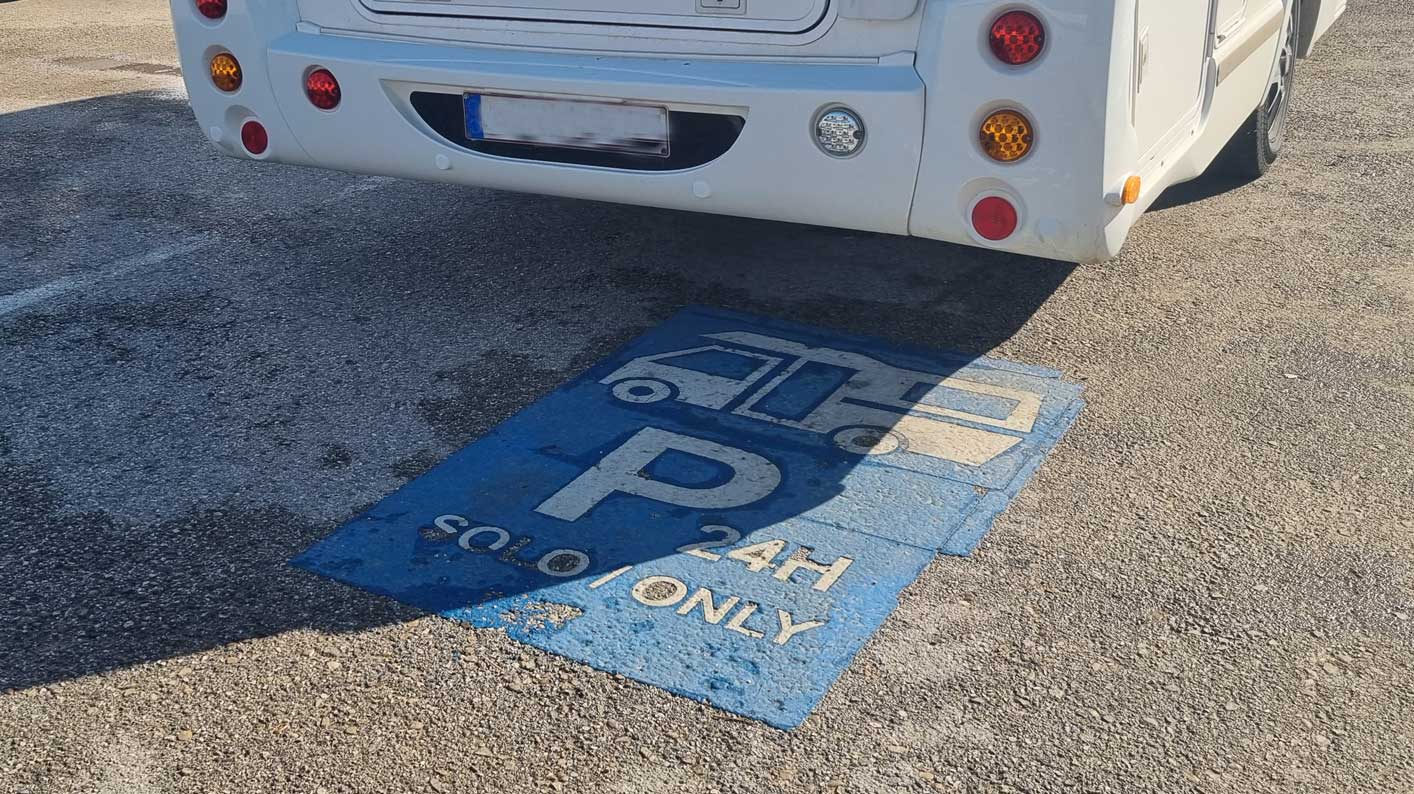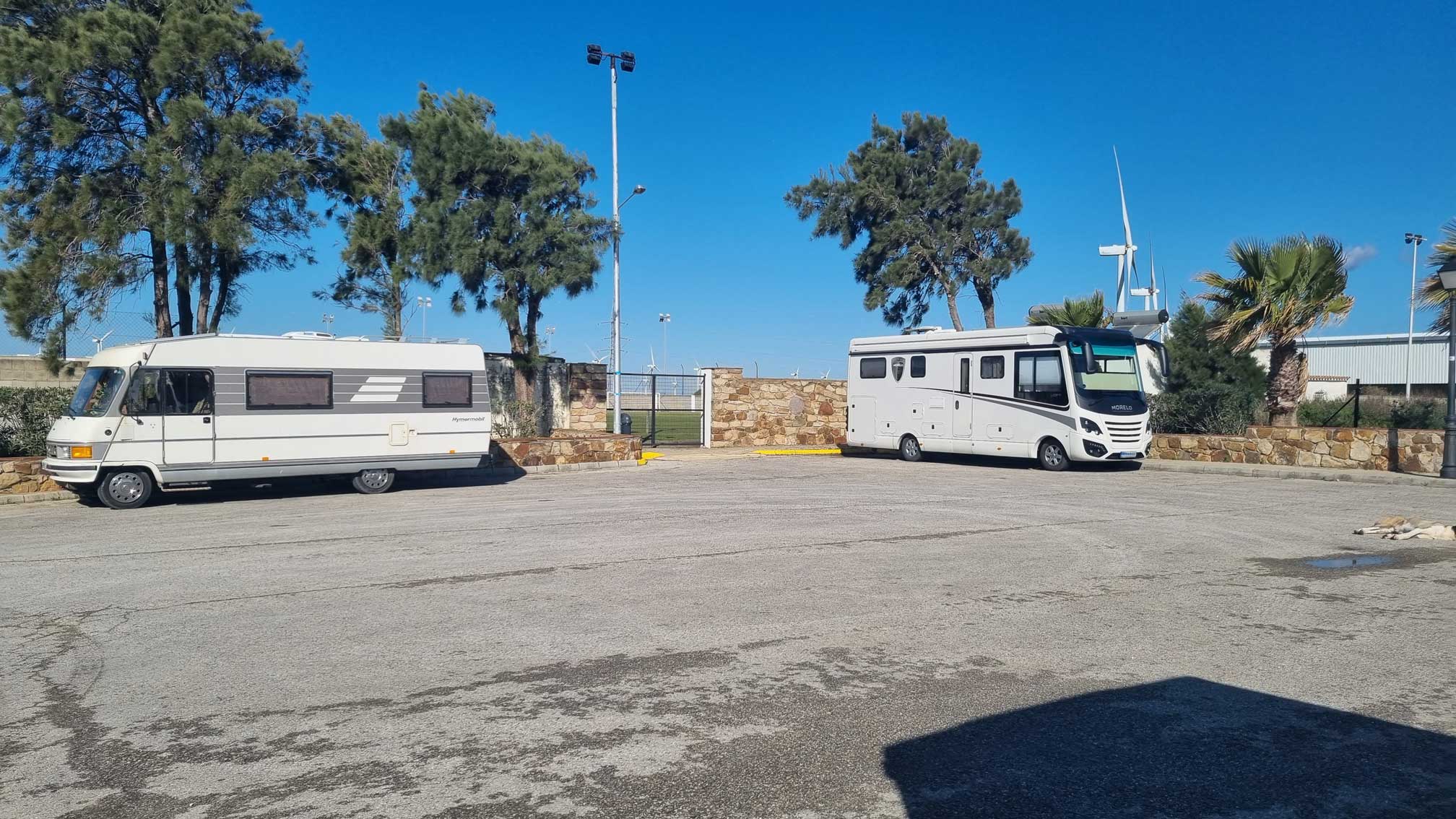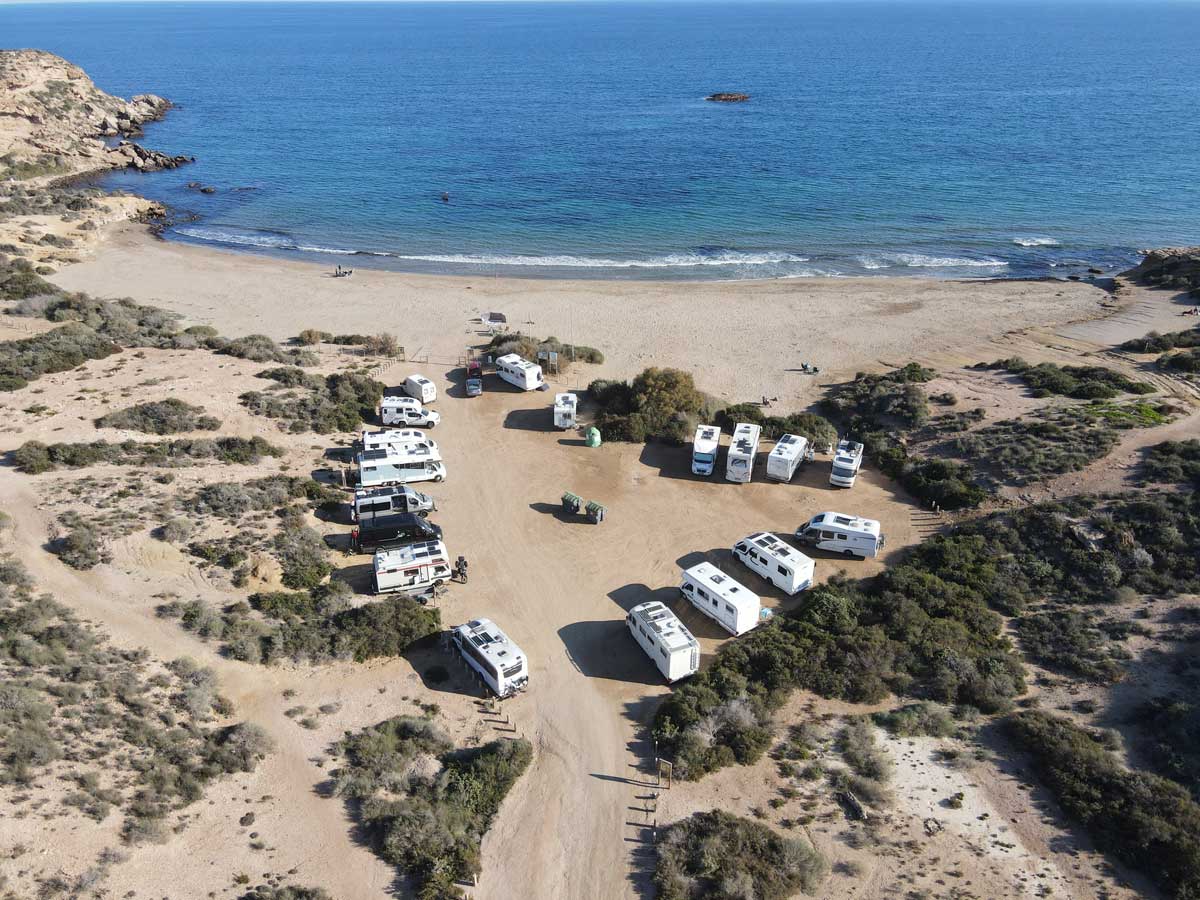Public camper areas are provided to camper travelers for their convenience and comfort while they travel and explore new destinations. And of course, cities and communes hope that they attract tourist income for the local economy.
However, it happens all too often that these facilities are abused, leading to frustration and dissatisfaction among local authorities, the inhabitants and the users that do treat the area respectfully.
The abuse can concern camper travelers who do not respect the conditions and guidelines of the area, or other people that are not camper travelers at all. The abuse mostly concerns free public camper areas but also paid public camper areas are often concerned.
Long stayers
One very common issue faced on free public camper areas is the extended stay of travelers who do not respect the maximum duration of stay. This can result in a lack of availability for other travelers who want to use the facilities. In some cases, travelers may even set up an almost permanent residence in the area, causing a disturbance to the local community and the environment. It can also lead to much more campers on the camper area than allowed, which is a safety concern.
Abuse of facilities
Another problem faced by free camper areas is the lack of respect for the facilities by some travelers. This can include littering, dumping waste inappropriately, or using the facilities for tasks that go beyond their intended purpose. For instance, some travelers may use the areas to wash their campers, which results in an excessive amount of water usage and often leaves the facilities dirty and unkempt.
If there are sanitary facilities, these are sometimes vandalized or left extremely dirty.
Camping behavior
Some camper travelers don’t respect other rules, like the prohibition of camping behavior which forbids open the awning or putting out chairs and tables. Such behavior is not only incompatible with the intended purpose of the camper area, it also takes available place from others and comes across as intimidating and disturbing.
How can cities and communes mitigate the abuse of public camper areas?
To mitigate these issues, it is crucial for the responsible authorities to enforce these rules and regulations and to ensure that the facilities are maintained in a safe and sustainable manner. But in practice this can be very difficult if the area is not under constant surveillance. Surveillance also comes at a cost.



How Camprea.org allows authorities to mitigate the abuse of public camper areas?
With Camprea users of the camper area are asked to register their stay in a free online app that they access by simply scanning the QR-code on the physical information panel. If the area is not free they can pay for their stay in the app. The app informs and reminds users in their own language on the area rules and provides information on local events or activities like hiking tours. Users will be prompted to respect the time limits for their stay and they also have the possibility to report issues that they might discover, like a broken tap. When there are facilities only intended for camper travelers, they can be locked and the Camprea app will provide registered visitors with the access code.
The registration, information and reminders have an important impact on the behavior of the users of the camper area. Actual user surveys show that camper travelers feel safer on such camper area and are much more inclined to respect the rules and visit the local economy. Local inhabitants also feel safer knowing that there is some kind of registration of the travelers in their neighborhood. Authorities are better informed on the use of the camper area and if there are problems.
Non-camper travelers can be denied access to facilities like showers, toilets or garbage containers.
A lot of benefits, and the only on-site requirement is an information panel with a QR-code.
Conclusion
In conclusion, public camper areas often represent a challenge for local authorities because of the abuse and the lack of tools to mitigate such abuse. By nudging the users to follow the guidelines and conditions of the area, and being respectful of the facilities, cities and communes can ensure the longevity and sustainability of public camper areas and the benefits of camper tourism in their region.

